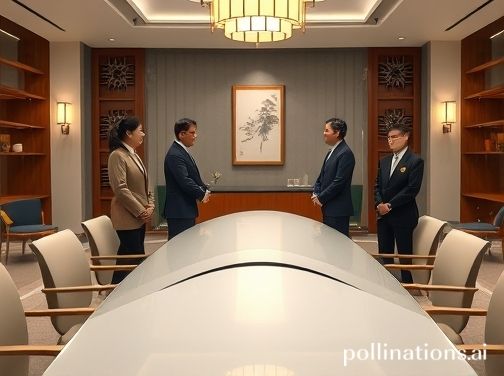Chen Shui-bian Calls for Dialogue to Bridge Taiwan's Political Divide
Former President Emphasizes Tolerance and Respect in a Divided Political Landscape.

Taipei, April 20 – Former President Chen Shui-bian (陳水扁) has called for greater dialogue and mutual respect to overcome the political divisions currently gripping Taiwan. Speaking publicly on Saturday, Chen addressed the importance of open communication and tolerance of differing viewpoints amidst the nation's partisan disagreements.
In a speech delivered to the Ketagalan Institute, an organization he established in 2003, Chen praised democracy as a system that empowers the people, upholds the separation of powers, embraces diversity, and holds everyone accountable to criticism.
He emphasized that in a democratic system, no single individual should dictate policy and no one should be labeled based on their ideological stance due to differing opinions.
When asked about how to mend Taiwan's political rifts, considering the divided government and recent events, Chen, while avoiding direct commentary on current events, reflected on his own experience when he took office in 2000. His Democratic Progressive Party (DPP) then had limited power and faced strong opposition.
During that period of democratic transition, Chen did not remove his critics, including top military leaders. Instead, he sought to treat them with tolerance and respect.
"The best way to deal with opposition forces is not by getting rid of them," Chen stated, recalling his post-inauguration summit with electoral rivals, including independent James Soong (宋楚瑜) and Lien Chan (連戰) of the Kuomintang (KMT).
He added, "People with power or official positions need to be the first to make concessions, to facilitate dialogue."
Chen's remarks have been interpreted by some as an indirect commentary or even a subtle critique of the current DPP-led government, which has been in frequent conflict with the opposition-controlled Legislature.
However, Chen later clarified to reporters that, despite facing recall motions himself, he would “support to the end” the party's efforts to pass mass recalls of KMT lawmakers as a DPP member.
Chen, elected as Taiwan's first president from the DPP in 2000, was detained by prosecutors shortly after his second term ended in 2008 and subsequently sentenced to 20 years in prison in several corruption cases. He was released on medical parole in 2015.
